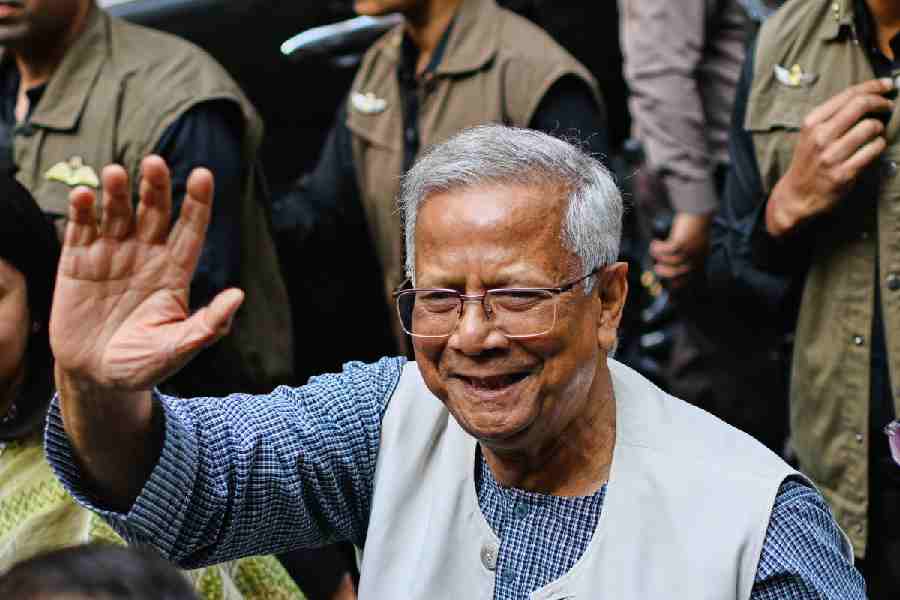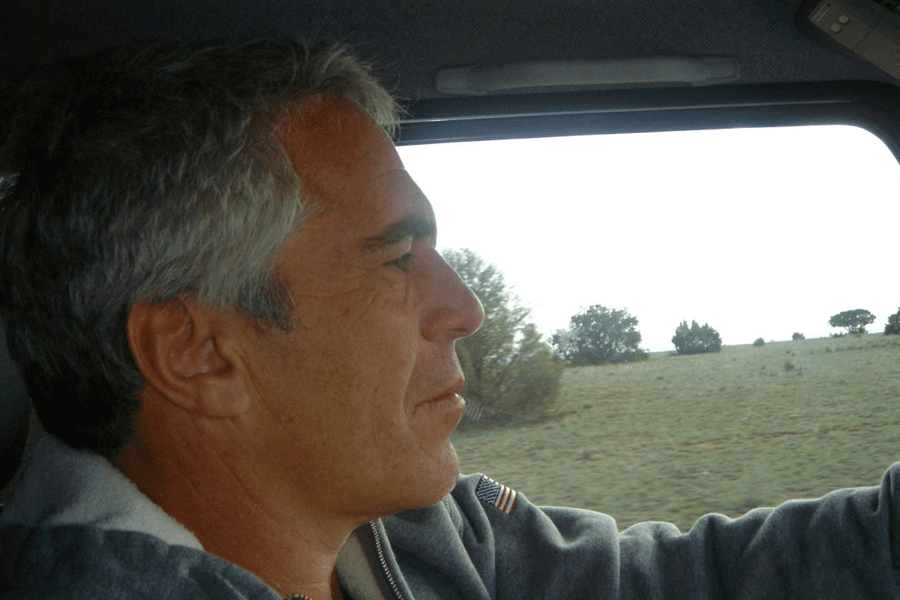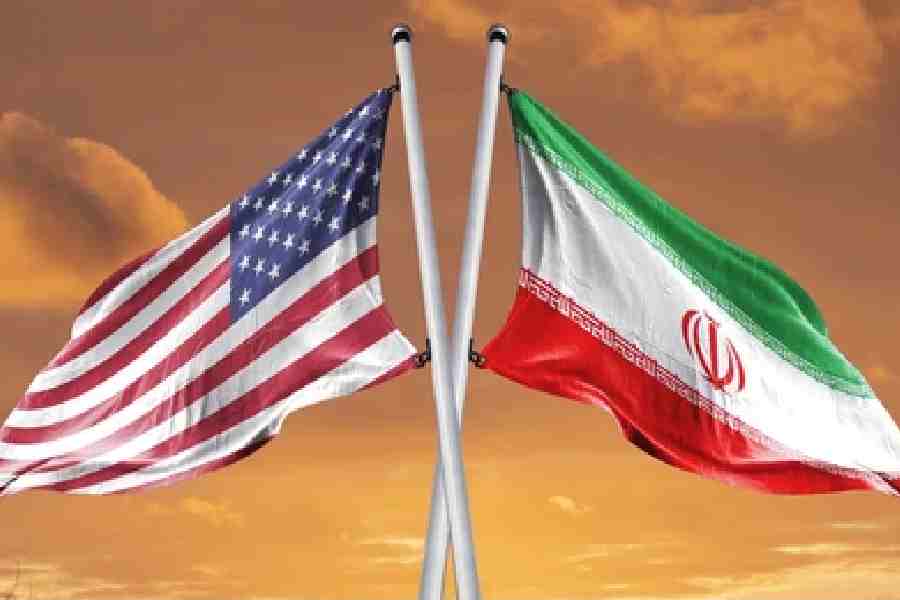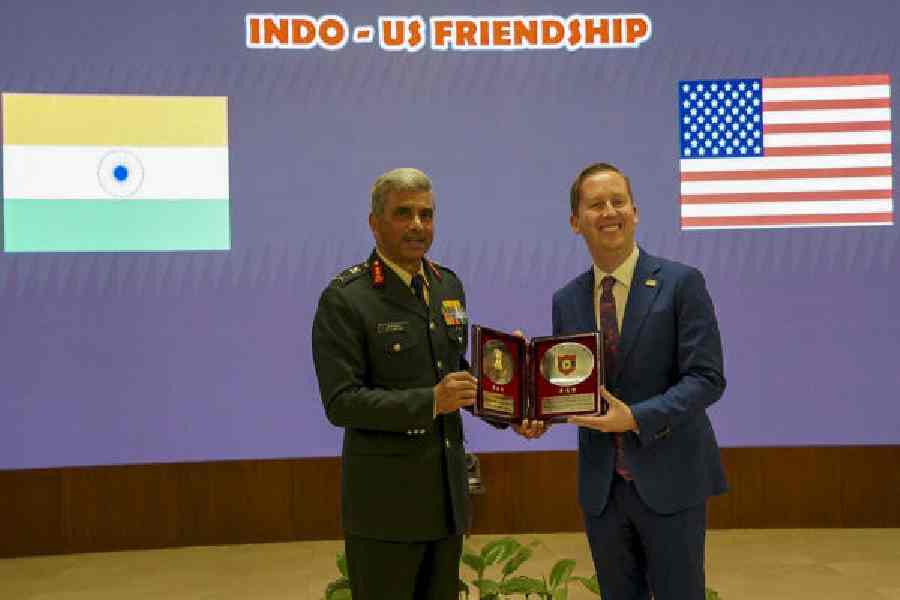 |
| Gandhi |
 |
| Churchill |
London, Jan. 1: The shocking disclosure that Winston Churchill was willing to allow Mahatma Gandhi to die in prison if the latter persisted with a hunger strike is made in British war cabinet documents from 1942 released yesterday.
Minutes of the war cabinet meetings taken by Sir Norman Brook, the deputy cabinet secretary, show that Churchill and other British leaders just did not know how to combat Gandhi’s hunger strike weapon.
Churchill, the Conservative Prime Minister, wanted Gandhi treated like any other prisoner.
His belligerent attitude contrasts sharply with the virtual hero worship of the Indian leader by the new Tory leader, David Cameron, who keeps referring to Gandhi in his public addresses, including his New Year message today to his party and the nation.
“As the world is changing, so must we,” said Cameron in his New Year pep talk.
Cameron held up as his inspiration the very man whom Churchill had loathed: “As Gandhi said, ‘we must be the change we want to see in the world.’”
Back in the days of the 1942 Quit India movement, Gandhi had been locked up in the Aga Khan’s palace because he had opposed India being dragged into what he saw as Britain’s war against Hitler’s Nazi Germany.
British leaders did not want Gandhi becoming a martyr nor did they want him set free to mobilise a campaign of civil disobedience at a time when a Japanese invasion of India seemed imminent.
The newly declassified papers show that the Viceroy at the time, Lord Linlithgow, sent a telegram to the war cabinet stating he was “strongly in favour of letting (Gandhi) starve to death”.
However, other senior politicians in London took the view that Gandhi’s death in custody might spark open rebellion across India.
Lord Halifax, the former foreign secretary and ambassador to the US, told the cabinet the day after Gandhi was arrested: “Whatever the disadvantages of letting him out, his death in detention would be worse.”
Eventually, ministers decided in January 1943 that although they could not publicly give in to a hunger strike, they would be willing to release him on compassionate grounds if it seemed he was likely to die.
Sir Stafford Cripps, the minister for aircraft production who had failed to persuade Gandhi to support the British war effort the previous year, said: “He is such a semi-religious figure that his death in our hands would be a great blow and embarrassment to us.”
Churchill’s instincts, however, were similar to those of Linlithgow.
The minutes, now available at the National Archives in Kew, west London, show Churchill expressing the view (in the shorthand employed by Brook): “I wd keep him there and let him do as he likes. But if you are going to let him out because he strikes, then let him out now.”
Churchill was adamant that if Gandhi had to be released, the action should not be depicted as a moral victory for him but rather a compassionate gesture by his British jailers. “Cab(inet) feel v strongly on principle of release because of strike,” the documents state. “Wd prefer to release as act of grace because det(ained) 6 (months) and we’ve beaten him.”
Gandhi was freed in 1944 because of fears that even if he died because of his frail condition, it might seem to the world that the British had allowed him to starve to death.
Churchill’s dislike of Gandhi was well known. After Gandhi had met the viceroy in 1931, Churchill made his notorious jibe: “It is alarming and nauseating to see Mr Gandhi, a seditious Middle Temple lawyer, now posing as a fakir of a type well known in the east, striding half naked up the steps of the viceregal palace, while he is still organising and conducting a campaign of civil disobedience, to parlay on equal terms with the representative of the Emperor-King.”
After Indian Independence, Churchill made up with Jawaharlal Nehru who had earlier travelled to Germany and had shared the British leader’s assessment of the threat posed to all mankind by the rise of Nazi Germany. Since Gandhi was assassinated in 1948, it is impossible to say if Churchill would have revised his opinion had the two met in different circumstances.
Somehow, although this must remain a matter of historical speculation, it seems unlikely. While Churchill and Nehru shared an aristocratic upbringing and a Harrow education, there was almost nothing he had in common with Gandhi.
Today, the British are not entirely blind about Churchill’s many faults but he retains a unique place in the affections of the nation. For example, an old feature film, Young Winston, featuring his acts of derring-do, was shown on television yesterday.
The British realise that without him they may have lost to Hitler ? incidentally, yesterday’s documents also reveal that Churchill had made it clear that if Hitler was caught he was to be put to death without bothering with a trial. At least, even Churchill did not advocate such an extreme solution for Gandhi.










